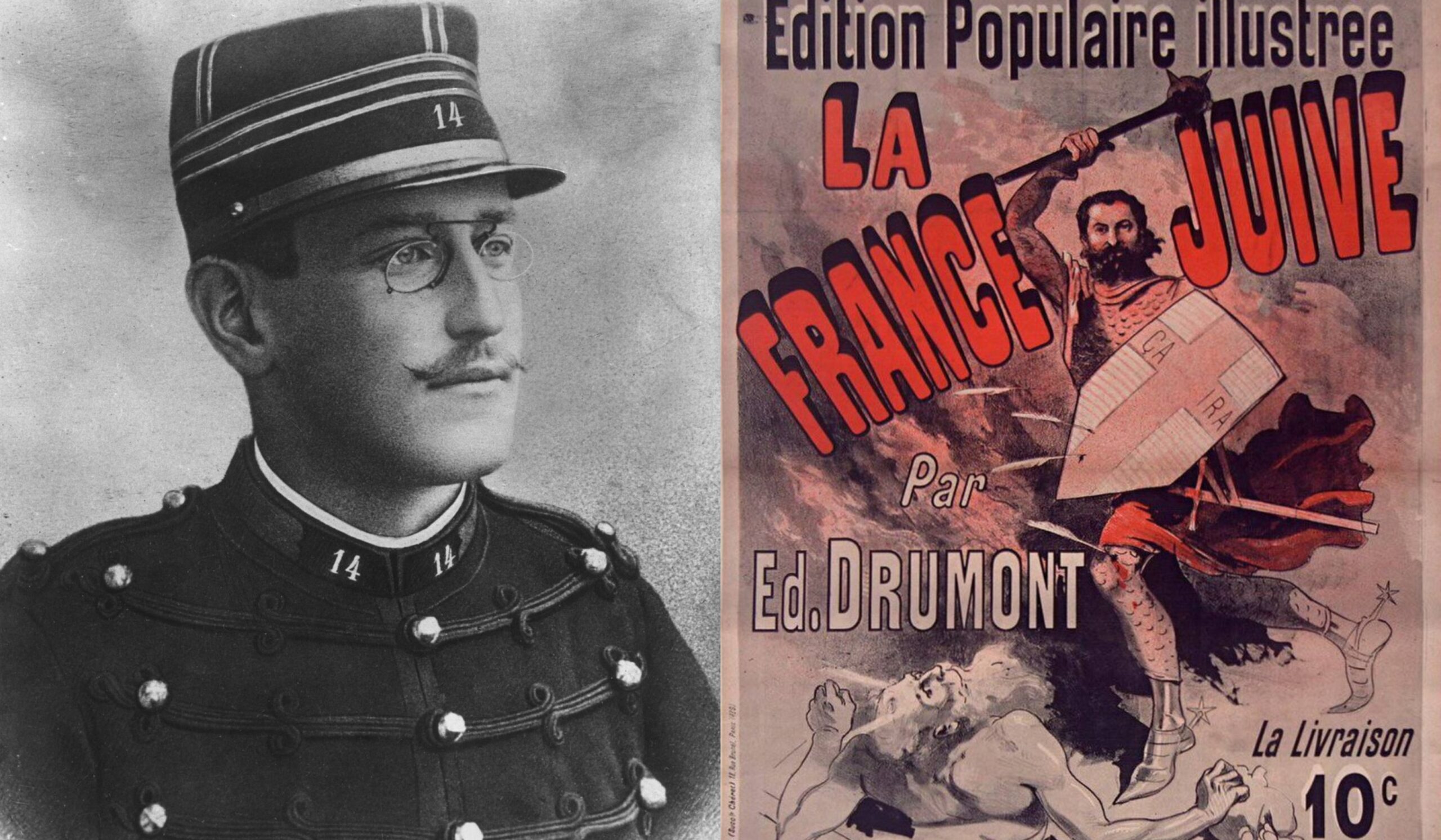Sometimes they come back. The Dreyfus case and “La France juive” by Édouard Drumont

Michael the Great's Notepad
Émile Zola achieved international fame thanks to the betrayal case that shook France at the end of the nineteenth century. His “J'Accuse”, published in “L'Aurore” on 13 January 1898, shifts the balance of power between the supporters of the innocence of Alfred Dreyfus, the Jewish artillery captain accused three years earlier of intelligence with Germany , and how many (the vast majority of public opinion) are certain of his guilt. In the months in which Dreyfus was arrested and tried, “La France juive” by Édouard Drumont (1886) had exceeded one hundred reprints. In an era in which positivist scientism was mixed with spiritualism and Satanism, Drumont uses it in an anti-Judaic key to explain how betrayal is inherent to the Jew.
In February 1898, France, from Dieppe to Nancy, from Lunéville to Lyon, from Bordeaux to Marseille, became the scene of anti-Semitic riots and violent actions against the Jews, guilty of belonging to the "immense secret society dedicated to usury" ( as Abbot Chabauty had already written in 1882 in a pamphlet entitled "Le juifs, nos maîtres! Documents et développements nouveaux sur la question juive", cited by Michele Battini in his "Il socialismo degli imbecilli", Bollati Boringhieri, 2010).
For Drumont, founder of the newspaper "Libre Parole", the Jew does not belong to the enemy, he does not belong to anyone: he is "wandering" and conceals himself in the folds of society. Since betrayal presupposes the breaking of a relationship of trust, for Drumont the truest traitors are not the Jews , who are rather spies who infect the social body with their presence, but their friends and supporters, the "judaïsant". The consensus received by these theses confirms the inconvenient truth denounced by Mathieu Dreyfus, namely that the incrimination of his brother was attributable to the virulent anti-Judaism that flourished among his fellow citizens. But it was only in 1898 that the world of culture, also driven by politicians such as Jean Jaurès, decided to counter the patriotic tide that was submerging France. Together with Zola, the historian Gabriel Monod and the sociologist Émile Durkheim, the first to take the field will be the scientists, starting with the director of the Pasteur Institute Émile Duclaux.
In August 1898, Colonel Henry had confessed to being the author of the document read to the National Assembly by the Minister of War Gopdefroy Cavaignac in support of the prosecution evidence against Dreyfus: placed under arrest in the fortress of Mont-Valérien, the forger was found dead the next day, having committed suicide or “committed suicide”. Henry's indictment had also contributed to overturning the balance of power in favor of the front favorable to the review of the trial that had led to the captain's conviction. To react to the defeat, Drumont tore up every principle of legal certainty, stating that Henry had courageously fabricated a "patriotic falsehood, with the praiseworthy intent of protecting his superiors engaged in the defense of the national interest. That apocryphal document, in other words, was nothing but the copy or representation of the truth, because it was a synthesis of "authentic passages".
Captain Dreyfus was reinstated in the army on 12 July 1906, receiving the Knight's Cross of the Legion of Honour. At first, the Italian socialists, following their comrades across the Alps, believed in his guilt. In June and October 1897 the socialist newspaper claimed that a plot by the "Jewish bankocracy" was trying to make the "traitor captain" escape from Devil's Island.
Everything changed in January 1898, when the leader of the French socialist party Jean Jaurès spoke in favor of the Alsatian officer. Since then also “l'Avanti!” he became an innocentist and presented the case as a stage in the fight for democracy, aimed at shedding light on the "thick chain of interests, of insane desires, of crimes that existed in the military organization, the bitter enemy of every healthy principle of freedom, of justice ”.
This is a machine translation from Italian language of a post published on Start Magazine at the URL https://www.startmag.it/mondo/a-volte-ritornano-il-caso-dreyfus-e-la-france-juive-di-edouard-drumont/ on Sat, 04 Nov 2023 06:47:53 +0000.
